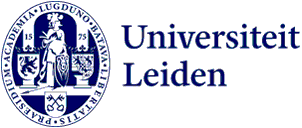
Funding for science communication on deaf community and on losing your way
Two Leiden University science communication projects have been awarded a WECOM grant through the Dutch Research Agenda (NWA). One project is a study of the history of the deaf community in the Netherlands and the other is of a condition that causes people to lose their way.
The NWA’s WECOM call promotes innovative science communication projects. These could be ones proposing innovative ways to get the public to experience science and engage with new audiences. Central to this is interaction with and collaboration between science and society.
Read more about the two Leiden projects below:
From invisible to visible
Victoria Nyst - Leiden University Centre for Linguistics
Partners: Dovenschap, Kenniscentrum Immaterieel Erfgoed Nederland, Erfgoedhuis Zuid-Holland, Meertens Instituut
As a minority group, the Dutch deaf community has its own language and culture and a history going back to the first deaf school in 1790 and possibly before. Dutch Sign Language received official recognition in 2021. While interest in Dutch heritage has grown in recent years, the deaf community’s heritage has remained largely invisible. Furthermore, changes in education, technology and society have made it less likely for sign language and deaf culture to be passed on to younger generations.
Sign language researchers, members of the Deaf Cultural Heritage working group, deaf experts and heritage organisations are joining forces to increase the visibility and sustainability of deaf heritage in the Netherlands by developing a Canon of Deaf History.
Lost your way – a platform for getting lost
Ineke van der Ham - Psychology
Co-applicants: Dietsje Jolles – Leiden University, Judith Schomaker – Leiden University, Sylvia van Beugen – Leiden University, Martine van Zandvoort – UMC Utrecht
Partners: Wetenschapsknooppunt Leiden, 8D Games
We all get lost at times and it can be frightening and stressful. Three per cent of the Dutch population (>500,000 people, 100,000 of whom are children) meet the criteria for Developmental Topographical Disorientation (DTD): frequently getting lost even in familiar surroundings, without brain abnormalities or other symptoms. But few people have heard of DTD, even those who meet the criteria. There is a great need for recognition and understanding. Many people with DTD try to conceal it, receive negative reactions from others and often wonder what is ‘wrong’ with them.
This project suggests creating an online DTD platform together with people with DTD. The main objective is to forge connections between researchers, society and people with DTD. The platform will provide information about DTD including a lesson plan for children aged 8 and up, a forum to exchange experiences and strategies, scientific tests and questionnaires, and a game that will allow people to experience what it feels like to have DTD. This will increase awareness of DTD, reduce the social and personal stigma, and lay the groundwork for better diagnosis and interventions.
